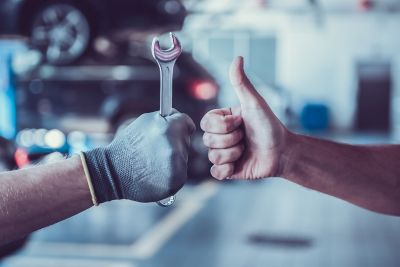- Check and Clean Filters: Dirty filters can restrict airflow, causing the compressor to overheat. Regularly check and clean or replace filters to ensure optimal performance
- Inspect the Cooling System: Ensure that the cooling system, including the fan and refrigerant, is functioning correctly. Clean the condenser coil and check the refrigerant charge level
- Monitor Thermostat Settings: Incorrect thermostat settings can cause the compressor to work harder than necessary. Regularly check and adjust the settings to maintain a balanced temperature
How to Prevent an Air Compressor from Overheating
Preventing Air Compressor Overheating: Causes and Practical Solutions
Air compressors are indispensable tools in various industries, but they can sometimes face the issue of overheating. This not only disrupts operations but can also lead to costly repairs. Understanding why your air compressor is overheating and shutting off is the first step towards preventing it. In this article, we will explore the common causes of overheating and provide practical tips to keep your air compressor running smoothly.
Understanding the Problem
Before diving into prevention methods, it's crucial to understand why air compressors overheat. Overheating can lead to significant downtime and costly repairs, so addressing the root causes is essential.
Common Causes of Overheating Air Compressor
- Ambient Temperature: High ambient temperatures can cause the compressor to work harder, leading to overheating. Ensure that your compressor is in a well-ventilated area to allow for proper cooling
- Frequent Shifting: Some air compressors have a push button that allows users to switch between different pressure levels or modes. Frequent shifting can cause the engine to start and stop repeatedly, generating heat and stress
- Lack of Cooling: The compressor may not receive enough cooling from the refrigerant or the fan. This can be due to issues like a clogged filter, a malfunctioning fan motor, or insufficient refrigerant flow
- Old Equipment: As compressors age, they become less efficient and more prone to overheating. Regular maintenance and timely replacements are crucial
- Continuous Operation: If compressors are going to be run continuously, despite being intended for an S3 intermittent load profile, it’s recommended to transition to S1 compressors, such as screw compressors or those from the ABAC Tech range.
Prevention Methods
Now that we understand the causes, let's explore some effective ways to prevent your air compressor from overheating.
- Avoid Frequent Shifting: Limit the use of the push button to switch between pressure levels. Avoid shifting more than once every 15 minutes to reduce heat generation
- Use a Soft Starter or Variable Frequency Drive: These devices can help reduce the impact of starting and stopping the engine, thereby minimizing heat buildup
- Ensure Adequate Ventilation: Place the compressor in a well-ventilated area to allow for proper cooling. Avoid placing it in confined spaces or near heat sources
Tackling Overheating Air Compressor Issues
Even with preventive measures, issues can still arise. Here are some troubleshooting tips to help you address overheating problems promptly.
- Check for Air Leaks: Air leaks can cause the compressor to work harder, leading to overheating. Inspect the system for leaks and repair them as needed
- Inspect the Fan Rotation: Ensure that the fan is rotating in the correct direction. Incorrect rotation can reverse airflow, causing the compressor to overheat
- Monitor the Compressor's Age: If your compressor is old and frequently overheating, it may be time for a replacement. Investing in a new, efficient compressor can save you time and money in the long run
Conclusion
Preventing an air compressor from overheating involves a combination of regular maintenance, proper usage, and timely troubleshooting. By understanding the common causes of overheating and implementing these preventive measures, you can ensure that your compressor operates efficiently and reliably.
Remember, addressing the question "why is my air compressor overheating and shutting off?" requires a proactive approach. Regularly inspect and maintain your equipment, use it correctly, and troubleshoot issues promptly to keep your compressor running smoothly.












